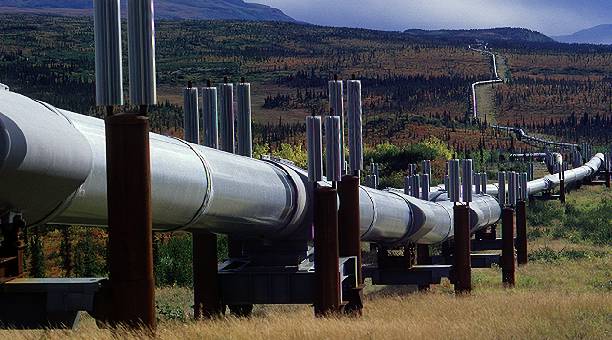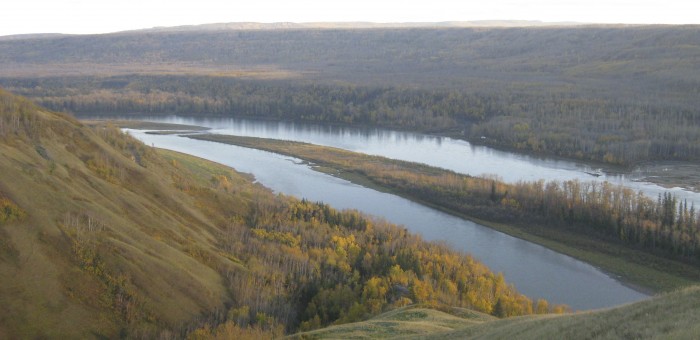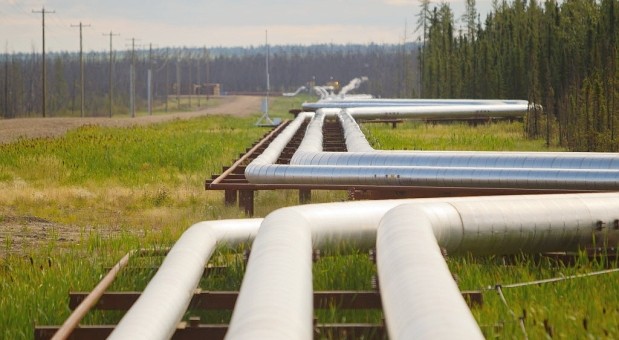Energy and Mines
New Timeline for Kinder Morgan Hearings Creates Opportunity for Oral Cross-Examination
Media Statement: July 15, 2014
Weaver says NEB timeline extension creates opportunity for oral cross-examination
For Immediate Release
The National Energy Board’s extended timeline for Kinder Morgan’s Trans Mountain pipeline hearings offers a perfect opportunity to introduce oral cross-examination into the hearing process, according to Andrew Weaver, MLA for Oak Bay-Gordon Head and Deputy Leader of the B.C. Green Party.
The National Energy Board announced today that it has revised its timeline for the pipeline hearings. The new timeline will put the regular hearing process on hold for three months while Trans Mountain files supplementary information on its new pipeline corridor through the City of Burnaby.
“I support the three month extension so that the necessary information on the new route can be tabled and reviewed by the NEB and by intervenors,” says Andrew Weaver, who himself is an intervenor in the hearing process.
This three-month extension would have put the NEB’s final deadline to submit its recommendations to the Federal Cabinet right in the middle of next October’s Federal election. However, the timeline has been further extended by an added four months, pushing the decision until January 2016.
Extending the timeline for the Trans Mountain Hearing Process was debated earlier this year, when Andrew Weaver supported a motion that requested that the NEB include oral cross-examination as part of the Hearing Process.
Oral cross examination was crucial to uncovering gaps in Enbridge’s evidence during the NEB hearings on the Northern Gateway Pipeline. Unfortunately, the NEB rejected the motion on the grounds that they had to meet a legislated timeline for reviewing this project.
“Given that an extension has been granted so that new evidence can be brought forward, I hope the board will reconsider its decision on oral cross-examination,” said Weaver. “There is no replacement for questioning Trans Mountain’s evidence in person, particularly in light of the inadequate written responses that Kinder Morgan has been providing to intervenors.”
“If the Board is willing to extend the timeline so new information can be introduced by Trans Mountain, I would hope they would consider using the extended timeline so that something as essential as oral cross-examination could be introduced to test company’s evidence,” said Weaver.
Andrew Weaver is the only B.C. MLA with intervenor status in the hearings.
-30-
Media Contact
Mat Wright – Press Secretary, Andrew Weaver MLA
1 250 216 3382
Weaver calls on BC Government to broaden BC Hydro scope to allow for production of geothermal power
Media Statement: July 9th, 2014
Weaver calls on BC Government to broaden BC Hydro’s scope to allow for production of geothermal power
For Immediate Release
Vancouver, B.C. – Today, Andrew Weaver, MLA for Oak Bay-Gordon Head and Deputy Leader of the B.C. Green Party, joined Gwen Johansson, the Mayor of Hudson’s Hope, as she released an independent report on the impacts of and the alternatives to the Site C project. Building on the findings of this report, Weaver is calling on the Provincial government to broaden BC Hydro’s scope to allow for the development of a geothermal power capacity in the province of British Columbia.
The Joint Review Panel (JRP) for the Site C dam released their report in early May. They found that the proposed project would result in significant and irreversible community and environmental impacts, and that there has not been sufficient assessment of the effects of rising electricity rates, advancing technology and energy conservation. They further noted that the accuracy of project cost estimates could not be confirmed because they did not have the information, time or resources. The Panel concluded that more work needed to be done and recommended a thorough review by the British Columbia Utilities Commission (BCUC).
The independent report released today by Mayor Johansson builds upon the findings of the JRP and proposes a number of cost effective alternatives to the Site C dam.
“It’s easy to believe that developing alternatives is always something that’s on the horizon,” said Weaver. “But with renewable resources like geothermal, British Columbia is actually falling further and further behind the rest of the world. If you look along the West coast of North America, and indeed throughout the entire Pacific Rim, the only jurisdiction that isn’t using its geothermal resources is British Columbia.”
Geothermal is only one of a number of different options identified in this report that are likely to produce power cheaper than Site C, while meeting the clean energy demands of this Province.
The Site C dam, if built, would be situated on the Peace River. It would produce 1,100 MW of power capacity and up to 5,100 GWh of electricity each year at an estimated cost of $7.9 billion dollars.
The construction of the Site C dam will flood 6,427 acres of Class 1 & 2 agricultural land, which includes the only Class 1 agricultural land north of Quesnel. The affected Treaty 8 Tribal Association has already expressed a number of serious concerns regarding the Site C dam proposal.
The Minister of Energy and Mines has stated that the decision as to whether or not Site C receives environmental certification will come sometime around September.
“The Province should take this opportunity to pause and explore whether geothermal energy could provide the same quantity of stable, reliable power, but in a more fiscally and environmentally prudent fashion and in a way that fosters partnerships with First Nations, while providing greater and more diverse job opportunities across the Province.” said Weaver.
Media Contact
Mat Wright – Press Secretary, Andrew Weaver MLA
mat.wright@leg.bc.ca
1 250 216 3382
BC Government Seeks Public Feedback on Oil Spill Preparedness
On April 25, 2014 the Ministry of Environment released an intentions paper on Land Based Spill Preparedness and Response in British Columbia. The Ministry is now seeking public comment on the paper, which outlines intentions to strengthen British Columbia’s land based oil spill preparedness and response regime and describes the progress that has been made so far.
The public has until July 25, 2014 to submit their feedback on the paper. Comments can be submitted by email, letter, or by completing an electronic response form. To read the Condition 3 intentions paper, please click here. To submit your feedback on the paper, please click here.
Federal decision on Northern Gateway an affront to democracy in BC
On June 17th the Federal Government approved Enbridge’s controversial Northern Gateway Pipeline. The pipeline will see 525,000 barrels of the heavy oil transported from the Alberta tar sands to the BC coast each day, for transport by tanker to foreign refineries.
With its decision, the Federal Government is bulldozing this pipeline through the backyards of British Columbians. Time and time again, First Nations along the pipeline route have made it clear that they will not accept the Northern Gateway pipeline on their traditional territory. The District of Kitimat rejected the project in a recent referendum. And poll after poll has shown an overwhelming majority of British Columbians do not believe the project should move forward.
The Federal Government’s failure to respect the will of British Columbians is particularly ironic. In 1980 when Trudeau introduced the National Energy Program, Albertans were outraged. They argued that it was utterly inappropriate for the federal government to interfere with their energy policy as it was deemed to be within provincial jurisdiction. Have we not learned anything from history?
First Nations along the pipeline route are among those who would be most impacted by its construction. Yet they have been largely ignored throughout much of this process. In fact, a Stephen Harper appointed special envoy on aboriginal and energy issues recently issued a report that showed the federal government’s approach to engagement with First Nations was inadequate.
In an address earlier this month to a conference for treaty negotiators, industry and government, the appointee Mr. Doug Eyford stated:
“I was struck that some of the communities that are today threatening judicial proceedings and civil disobedience were at one time requesting meetings with federal officials and making what I believe, in retrospect, were feasible proposals to address the environmental and other issues associated with the project. … Regrettably, there was no uptake.”
We owe our First Nations a debt of gratitude as they commence legal action to have their constitutional rights enforced. First Nations are using their resources — resources that could be used towards the betterment of their communities — to defend the interests of all British Columbians in court. This shouldn’t need to be the case. It is the BC Government that should be stepping up to defend the rights of all British Columbians. The spotlight is now on Premier Clark.
The BC Government has stated it has the power to stop the Northern Gateway pipeline through the 60 required provincial permits. Yet so far Premier Clark and her government have sat largely on the sidelines, neglecting to make any concrete commitments one way or the other.
The BC Government has stated that for any heavy oil pipeline to proceed, it must meet five conditions. Immediately after the Northern Gateway decision, Clark’s government made it very clear that these conditions have not yet been met.
Yet even if their 5 conditions are eventually met, the fact is that on their own, they are not enough. The heavy oil that is to be transported on tankers along our coast is called diluted bitumen, or dilbit. A recent federal study has clearly shown that in the presence of suspended sediments, of which there are no shortage in our coastal waters, dilbit will sink when spilled in the ocean, making recovery difficult, if not impossible, and the damages potentially catastrophic.
We do not have the science or the capacity to deal with a dilbit spill. And none of Premier Clark’s 5 conditions address this. In fact, In its comprehensive 2013 submission to the Northern Gateway Joint Review Panel the British Columbia Government was very clear: “the Province is not able to support approval of the project”.
This is why I, together with the BC Green Party, have called for a moratorium on tankers transporting dilbit, adding this as a sixth condition on top of B.C. Liberal’s existing five conditions.
With today’s decision to approve the Enbridge pipeline, the deadline for meeting the 5 BC Liberal conditions has passed. It is time for Premier Clark and her government to stand up and reflect the wishes of British Columbians by unequivocally rejecting the federal decision to proceed with the Northern gateway project.
With a federal ‘Yes’ on Northern Gateway, it’s time for the provincial government to say ‘No’
Media Statement: June 17, 2014
With a federal ‘Yes’ on Northern Gateway, it’s time for the provincial government to say ‘No’
For Immediate Release
Victoria B.C. – The B.C. Green Party is calling the Federal Cabinet decision that approved Enbridge’s
controversial Northern Gateway pipeline deeply troubling for democracy. The majority of British
Columbians have consistently been opposed to the pipeline, as was reiterated with the latest Nanos poll,
showing 67% opposition.
“The Federal Government continues to ignore the will of British Columbians,” says Andrew Weaver, MLA
for Oak Bay-Gordon Head and Deputy Leader of the B.C. Green Party. “The fact is, Kitimat is opposed to
this project. First Nations are opposed to it. British Columbians are opposed to it. It’s time for the
Provincial Government to draw a line in the sand, and reject the Northern Gateway project.”
With the failure of the Federal Government to represent the will of British Columbians, the spotlight is
now on Premier Clark.
“The Federal Government is steamrolling this pipeline through the backyards of British Columbians.”
says B.C. Green Party leader Adam Olsen. “Premier Clark can stop this pipeline. I am calling on her to
do that today.”
Yesterday, Premier Clark reiterated that any heavy oil pipeline needs to meet her government’s five
conditions, concluding that “Enbridge hasn’t met them yet.”
One of those conditions is a world-leading marine spill response regime. This is complicated by the fact
that the tankers would be carrying diluted bitumen, a heavy oil that has been shown to sink when spilled
in the ocean, making recovery more difficult.
The B.C. Green Party is the only party with a clear stance calling for a moratorium on tankers
transporting this heavy oil, adding this as a sixth condition on top of B.C. Liberal’s existing five conditions.
The BC government has stated that they have the power to stop the Enbridge pipeline through the 60
required provincial government permits. Yet so far the government has largely sat on the sidelines,
neglecting to make any concrete commitments one way or the other.
“This is no time for political dances and electoral calculations. This is our coast they are putting at risk.
British Columbians expect Northern Gateway to be rejected by their provincial government, and we
expect it today,” added Adam Olsen
Media Contact – Andrew Weaver MLA
Mat Wright – Press Secretary
1 250 216 3382
mat.wright@leg.bc.ca
Media Contact – B.C. Green Party / Adam Olsen
Stefan Jonsson – Director of Communications
1 250 514 0288
stefan.jonsson@greenparty.bc.ca







